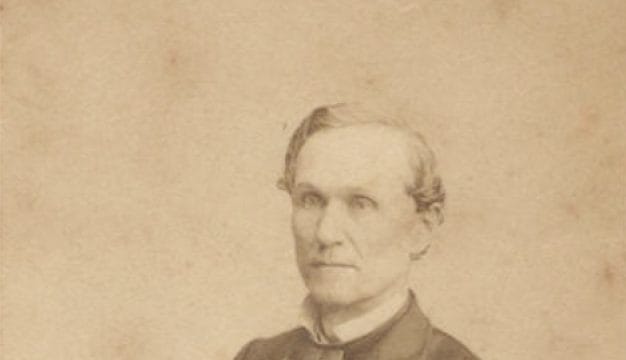Barry Beckett
 MSRS 1973
Keyboardist and record producer Barry Edward Beckett (1943-2009) is widely recognized for his formative role as an omnipresent musical force in Muscle Shoals and Sheffield, Colbert County. As a member of the house band at Florence Alabama Music Enterprises (FAME) and then of the Muscle Shoals Rhythm Section (MSRS) at Muscle Shoals Sound Studio (MSSS), Beckett was a virtuoso multi-keyboardist whose work was essential to the creation of the "Muscle Shoals sound." Later relocating to Hendersonville, Tennessee, in the mid-1980s, Beckett continued his legacy as a highly regarded country-rock-and-soul music arranger and producer. Overall, he helped shape the musical careers of an impressive roster of leading artists of rhythm & blues, soul, rock, and country who continue to influence and inspire upcoming musicians and artists.
MSRS 1973
Keyboardist and record producer Barry Edward Beckett (1943-2009) is widely recognized for his formative role as an omnipresent musical force in Muscle Shoals and Sheffield, Colbert County. As a member of the house band at Florence Alabama Music Enterprises (FAME) and then of the Muscle Shoals Rhythm Section (MSRS) at Muscle Shoals Sound Studio (MSSS), Beckett was a virtuoso multi-keyboardist whose work was essential to the creation of the "Muscle Shoals sound." Later relocating to Hendersonville, Tennessee, in the mid-1980s, Beckett continued his legacy as a highly regarded country-rock-and-soul music arranger and producer. Overall, he helped shape the musical careers of an impressive roster of leading artists of rhythm & blues, soul, rock, and country who continue to influence and inspire upcoming musicians and artists.
 Jimmy Johnson and the Del-Rays
Beckett was born February 4, 1943, in Birmingham, Jefferson County, to Horace Beckett, a part-time musician and insurance salesman, and Evelyn Yerta Beckett. In the early 1960s, Beckett attended the University of Alabama in Tuscaloosa, Tuscaloosa County, for two years where he became acquainted with guitarist Jimmy Johnson and drummer Roger Hawkins of the Del-Rays, future organizers of MSSS. Beckett then worked as a keyboardist and associate of "Papa" Don Schroeder, a blues producer in Pensacola, Florida.
Jimmy Johnson and the Del-Rays
Beckett was born February 4, 1943, in Birmingham, Jefferson County, to Horace Beckett, a part-time musician and insurance salesman, and Evelyn Yerta Beckett. In the early 1960s, Beckett attended the University of Alabama in Tuscaloosa, Tuscaloosa County, for two years where he became acquainted with guitarist Jimmy Johnson and drummer Roger Hawkins of the Del-Rays, future organizers of MSSS. Beckett then worked as a keyboardist and associate of "Papa" Don Schroeder, a blues producer in Pensacola, Florida.
 FAME Studios, 1967
After keyboardist Spooner Oldham moved to Memphis in 1965, Beckett was invited to FAME the following year to play on "I'm Your Puppet," performed by James and Bobby Purify. Thus began his long association in the Muscle Shoals music scene. In 1966 or so, Beckett married Diane Watson with whom he would have two sons and who both became musicians. Beckett returned to Muscle Shoals in 1967 joining members of FAME's house band, including Hawkins, Johnson, and bassist David Hood. After leaving FAME in April 1969, Beckett with Hawkins, Hood, and Johnson established the MSSS and formed the MSRS as the studio band. Beckett's keyboard presence on hit records took on a more prominent role in recordings made during the following decade and a half at MSSS. During the mid-1970s, Beckett also played on a host of recordings made at MSSS and released on STAX Records, including the Staple Singers' noted "I'll Take You There," and with Montgomery native Eddie Floyd. Also for the STAX label, Beckett and Hawkins co-produced the duo Mel and Tim's album Starting All Over Again in 1972.
FAME Studios, 1967
After keyboardist Spooner Oldham moved to Memphis in 1965, Beckett was invited to FAME the following year to play on "I'm Your Puppet," performed by James and Bobby Purify. Thus began his long association in the Muscle Shoals music scene. In 1966 or so, Beckett married Diane Watson with whom he would have two sons and who both became musicians. Beckett returned to Muscle Shoals in 1967 joining members of FAME's house band, including Hawkins, Johnson, and bassist David Hood. After leaving FAME in April 1969, Beckett with Hawkins, Hood, and Johnson established the MSSS and formed the MSRS as the studio band. Beckett's keyboard presence on hit records took on a more prominent role in recordings made during the following decade and a half at MSSS. During the mid-1970s, Beckett also played on a host of recordings made at MSSS and released on STAX Records, including the Staple Singers' noted "I'll Take You There," and with Montgomery native Eddie Floyd. Also for the STAX label, Beckett and Hawkins co-produced the duo Mel and Tim's album Starting All Over Again in 1972.
Back in Sheffield, Beckett and the MSRS assisted British producer Denny Cordell, who brought several artists to MSSS in the early 1970s including Joe Cocker, Leon Russell, and J.J. Cale. These sessions attracted the attention of Island Records' Chris Blackwell and reggae singer Jimmy Cliff, whose sessions at MSSS for the album Another Cycle (1971) featured Beckett's inimitable electric piano accompaniment on "Sitting in Limbo." Blackwell, then producing the British band Traffic, hired Beckett and the MSRS to tour Germany with Traffic in April 1973, and the live recordings were released as On the Road in October 1973.
After returning from Europe, Beckett and the MSRS engaged in round-the-clock sessions. Beckett's recorded performances in the studio increasingly exhibited multitracking of his considerable keyboard skills on piano, electric piano, organ, and clavinet to orchestrate the dynamics of a song. Paul Simon's hit song "Kodachrome" on There Goes Rhymin' Simon (1973) features Beckett on Wurlitzer electric piano, organ, and piano, accentuating the song's arrangement. Noted British rock crooner Rod Stewart followed the steady stream of artists to MSSS, where in 1975 he recorded tracks from Atlantic Crossing, including the epic ballad "Sailing" that highlights Beckett's magnificent multi-keyboard work. In 1976, Stewart taped "Tonight's the Night," which showcases Beckett's signature flourish on Hammond organ and delicate electric piano chording. In the mid-1970s, as STAX dissolved operations, Beckett recorded with Bobby Womack and Johnnie Taylor for Columbia Records, and Colbert County native Percy Sledge, Bonnie Bramlett, and Eddie Hinton for Capricorn Records. Those sessions also reveal the emerging presence of Beckett's command of the keyboard role as well as arranger.
 Bob Seger and Barry Beckett
Meanwhile, Beckett also shouldered additional arranging and production responsibilities. In 1976, Jerry Wexler brought Alabama artists the Sanford-Townsend Band to MSSS and Beckett co-produced their big hit "Smoke from a Distant Fire." A year later, Beckett co-produced (with Peter Yarrow of the folk trio Peter, Paul, and Mary) Mary MacGregor's chart hit "Torn Between Two Lovers." More productions from Beckett followed. Whereas many Bob Seger recordings at MSSS albums assign production credit to the MSRS collectively (with Seger), Seger's 1991 platinum-charting The Fire Inside credits Beckett as producer. Similarly, Beckett became more influential as a producer for Delbert McClinton, with he and the MSRS sharing production credits on The Jealous Kind. The emergence of Beckett as an influential producer in his own right (or as co-producer with Jerry Wexler) is confirmed by a series of high-profile productions at MSSS, including Joe Cocker's Luxury You Can Afford (1978), the first sessions at the updated Muscle Shoals Sound. It was followed by other notable records, including Dire Straits' Communique (1979), Bob Dylan's Slow Train Coming (1979) and Saved (1980), John Prine's Storm Windows (1980), Frankie Miller's Standing on the Edge (1982), Carlos Santana's Havana Moon (1983), and Glenn Frey's The Allnighter (1984), for which Beckett produced the top 20 hit "Sexy Girl."
Bob Seger and Barry Beckett
Meanwhile, Beckett also shouldered additional arranging and production responsibilities. In 1976, Jerry Wexler brought Alabama artists the Sanford-Townsend Band to MSSS and Beckett co-produced their big hit "Smoke from a Distant Fire." A year later, Beckett co-produced (with Peter Yarrow of the folk trio Peter, Paul, and Mary) Mary MacGregor's chart hit "Torn Between Two Lovers." More productions from Beckett followed. Whereas many Bob Seger recordings at MSSS albums assign production credit to the MSRS collectively (with Seger), Seger's 1991 platinum-charting The Fire Inside credits Beckett as producer. Similarly, Beckett became more influential as a producer for Delbert McClinton, with he and the MSRS sharing production credits on The Jealous Kind. The emergence of Beckett as an influential producer in his own right (or as co-producer with Jerry Wexler) is confirmed by a series of high-profile productions at MSSS, including Joe Cocker's Luxury You Can Afford (1978), the first sessions at the updated Muscle Shoals Sound. It was followed by other notable records, including Dire Straits' Communique (1979), Bob Dylan's Slow Train Coming (1979) and Saved (1980), John Prine's Storm Windows (1980), Frankie Miller's Standing on the Edge (1982), Carlos Santana's Havana Moon (1983), and Glenn Frey's The Allnighter (1984), for which Beckett produced the top 20 hit "Sexy Girl."
In 1985, Beckett moved to Nashville and joined Warner Brothers-Nashville as an artists-and-repertoire producer. Crossing ever more into country music, Beckett played keyboards on Fort Payne-based Alabama's chart-topping album Southern Star (1989), which he also helped produce. His transition from Muscle Shoals to Nashville affirmed the growing influence of Muscle Shoals "country-soul" sound on country music as a genre. At the same time, Muscle Shoals was adapting the West Coast sound to country performance style via the influential Jim Ed Norman, then president of Warner Brothers-Nashville. Norman, with Glenn Frey and The Eagles, had joined forces on Bob Seeger's 1980 chart hit "Fire Lake." In Nashville, Beckett and Norman teamed up to produce Hank Williams Jr.'s Montana Café (1986), which reached No. 1 on Billboard magazine's Top Country Albums chart. In 1988, Beckett played on Rodney Crowell's Diamonds & Dirt, a gold record boasting five number one singles on Billboard's Country charts, followed by Vince Gill's No. 2 hit "When I Call Your Name" in 1989. He helped launch Kenny Chesney's career with My Wildest Dreams (1994) followed by All I Need to Know (1995) and Me and You (1996). Beckett also produced veteran country artists Tanya Tucker, Tammy Wynette, and Vern Gosdin. Beckett was inducted into the Alabama Music Hall of Fame in 1995 as a member of the MSRS and into the (Nashville) Musicians Hall of Fame in 2008.
Beckett died June 10, 2009, in Hendersonville from complications of a stroke. His impressive 50-year career as a keyboardist, producer, and artists' representative reached international audiences and brought together the most renowned musical figures of the period and continues to inspire countless musicians and music fans.
Further Reading
- Everett, Todd. "Barry Beckett." In The Encyclopedia of Country Music, edited by Paul Kingsbury. Oxford University Press, 1998, pp. 31-32.



